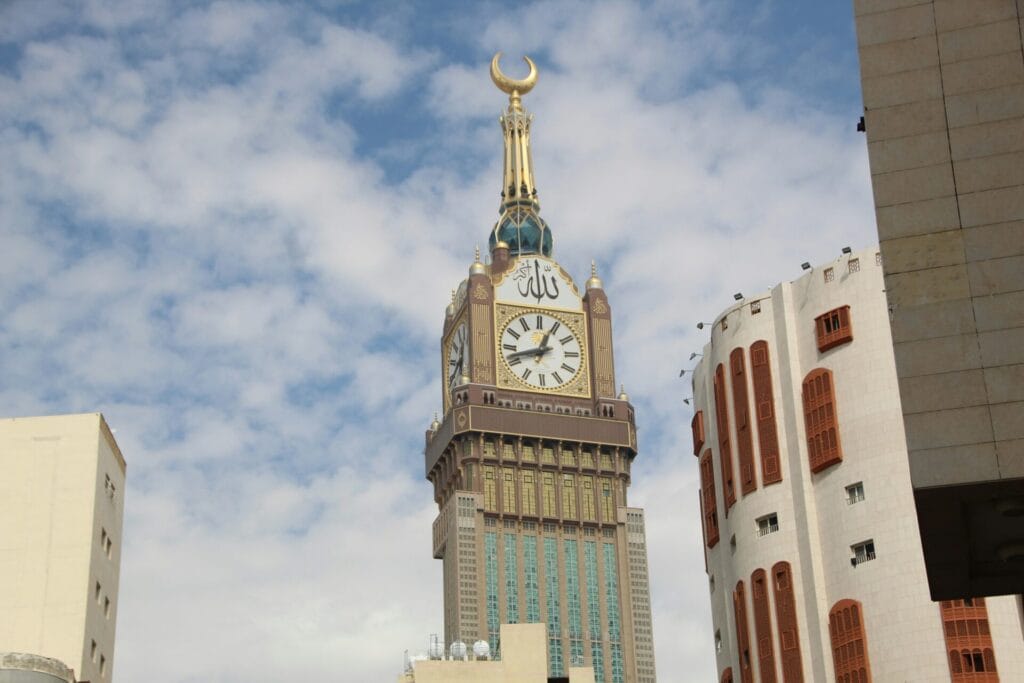Hajj, the annual pilgrimage to Mecca, is a spiritual journey that holds deep significance for Muslims around the world. It is a time for believers to come together and fulfill one of the five pillars of Islam. The journey of Hajj is not just a physical one, but also a spiritual and emotional one. It is a time for reflection, repentance, and seeking forgiveness from Allah. The rituals of Hajj, such as the Tawaf (circumambulation) around the Kaaba, the symbolic stoning of the devil, and the standing at Mount Arafat, all hold profound spiritual meanings for the pilgrims. It is a time to connect with one’s faith on a deeper level and to seek spiritual purification.
The purpose of Hajj goes beyond just fulfilling a religious obligation; it is also about seeking closeness to Allah and finding inner peace. The journey of Hajj is a reminder of the transient nature of life and the importance of seeking forgiveness and redemption. It is a time for self-reflection and self-improvement, as pilgrims seek to cleanse their souls and renew their faith. The spiritual journey of Hajj is a transformative experience that leaves a lasting impact on the hearts and minds of those who undertake it. It is a time to seek spiritual growth, strengthen one’s faith, and deepen one’s connection to Allah.
Connecting with the Global Muslim Community: Building Solidarity through Shared Experience
Hajj is a unique opportunity for Muslims from all corners of the globe to come together and connect with one another. It is a time when people from diverse backgrounds, cultures, and languages gather in one place with a shared purpose. The pilgrimage to Mecca fosters a sense of unity and solidarity among the global Muslim community. It is a powerful reminder of the universality of Islam and the bonds that unite believers regardless of their nationality or ethnicity. The experience of performing the same rituals alongside millions of fellow Muslims creates a sense of belonging and kinship that transcends geographical boundaries.
The shared experience of Hajj also serves as a platform for building bridges between different Muslim communities. It provides an opportunity for people to learn from one another, exchange cultural traditions, and foster mutual understanding. The connections made during Hajj can lead to lasting friendships and collaborations that contribute to the strength and cohesion of the global Muslim ummah. The pilgrimage to Mecca is a powerful demonstration of the diversity within the Muslim community and the potential for unity in the face of shared beliefs and values.
Understanding the Sacrifices of Hajj: Fostering Empathy for Others
The rituals of Hajj are steeped in symbolism and serve as a reminder of the sacrifices made by Prophet Ibrahim and his family. The act of sacrificing an animal during Hajj is a symbolic reenactment of Ibrahim’s willingness to sacrifice his son Isma’il as an act of obedience to Allah. This ritual serves as a powerful reminder of the importance of sacrifice and submission to the will of Allah. It also fosters empathy for those who are less fortunate, as the meat from the sacrificed animal is distributed to those in need, both locally and globally. This act of charity and compassion reinforces the values of generosity and empathy that are central to Islam.
The experience of Hajj also fosters empathy for others through the physical challenges and hardships that pilgrims endure during the journey. The long hours of walking, the crowded conditions, and the intense heat can be physically demanding, but they also serve as a reminder of the struggles faced by others around the world. The shared experience of hardship during Hajj fosters a sense of empathy and compassion for those who face adversity in their daily lives. It serves as a powerful reminder of the importance of helping those in need and working towards social justice and equality.
Embracing Diversity and Unity: Learning from the Multicultural Gathering at Hajj
Hajj is a truly multicultural gathering that brings together people from all walks of life. The pilgrimage to Mecca is a melting pot of cultures, languages, and traditions, as Muslims from every corner of the globe come together in one place. The diversity of the pilgrims reflects the diversity within Islam itself, with people from different ethnicities, nationalities, and backgrounds coming together in unity. This multicultural gathering provides an opportunity for people to learn from one another, exchange cultural traditions, and celebrate the richness of diversity within the Muslim community.
The experience of Hajj also serves as a powerful reminder of the unity that exists within the global Muslim ummah. Despite their differences, pilgrims come together with a shared purpose and a shared faith. The rituals of Hajj serve as a unifying force that transcends cultural and linguistic barriers, creating a sense of solidarity among believers. The multicultural gathering at Hajj provides an opportunity for people to embrace diversity and celebrate the common humanity that unites them.
Compassion in Action: The Impact of Hajj on Social Responsibility and Altruism
The experience of Hajj has a profound impact on pilgrims’ sense of social responsibility and altruism. The act of performing Hajj involves acts of charity, kindness, and compassion towards others. Pilgrims are encouraged to perform acts of goodwill, such as feeding the poor, helping those in need, and treating others with kindness and respect. These acts of compassion are not only an integral part of the pilgrimage experience but also serve as a reminder of the importance of social responsibility in Islam.
The experience of Hajj also fosters a sense of altruism among pilgrims, as they witness firsthand the struggles faced by others during their journey. The physical challenges and hardships endured during Hajj serve as a powerful reminder of the importance of helping those in need and working towards social justice. The experience of performing acts of charity and kindness during Hajj has a lasting impact on pilgrims’ attitudes towards social responsibility, inspiring them to continue making positive contributions to their communities long after they have returned home.
Overcoming Adversity and Struggle: Finding Strength and Resilience through Hajj
The journey of Hajj is not without its challenges, as pilgrims endure physical hardships, long hours of walking, crowded conditions, and intense heat. However, these challenges also serve as an opportunity for pilgrims to demonstrate strength and resilience in the face of adversity. The experience of overcoming these obstacles fosters a sense of inner strength and determination among pilgrims, as they push themselves beyond their comfort zones in pursuit of spiritual fulfillment.
The physical challenges faced during Hajj also serve as a reminder of the struggles faced by others around the world. Pilgrims are reminded of the importance of perseverance in the face of hardship and are inspired to continue striving towards their goals despite any obstacles they may encounter. The journey of Hajj serves as a powerful lesson in resilience, determination, and perseverance that leaves a lasting impact on pilgrims long after they have returned home.
Spreading the Message of Peace and Understanding: The Role of Hajj in Promoting Tolerance and Harmony
Hajj plays a crucial role in promoting tolerance, understanding, and harmony among people from diverse backgrounds. The pilgrimage to Mecca provides an opportunity for people to come together in peace and unity, regardless of their differences. The rituals of Hajj serve as a powerful reminder of the values of peace, compassion, and understanding that are central to Islam. Pilgrims are encouraged to treat others with kindness and respect, regardless of their nationality or ethnicity.
The experience of Hajj also serves as an opportunity for people to learn from one another, exchange cultural traditions, and foster mutual understanding. The connections made during Hajj can lead to lasting friendships and collaborations that contribute to the strength and cohesion of the global Muslim ummah. The pilgrimage to Mecca is a powerful demonstration of the diversity within the Muslim community and the potential for unity in the face of shared beliefs and values.
In conclusion, Hajj is not just a religious obligation; it is a transformative experience that leaves a lasting impact on pilgrims’ hearts and minds. It serves as an opportunity for spiritual growth, self-reflection, and self-improvement. The pilgrimage to Mecca fosters unity among diverse Muslim communities while promoting tolerance, understanding, compassion, and social responsibility. The experience of Hajj serves as a powerful reminder of the values that are central to Islam – peace, compassion, empathy, resilience, and unity – which have far-reaching implications for individuals, communities, and societies around the world.

